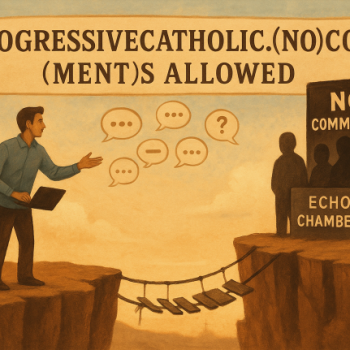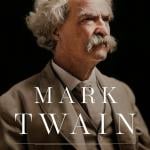TODAY IN GOD:
RELIGION NEWS BITES FOR YOUR SNACKING PLEASURE
____________________________________________________________________________________
CHAT ABOUT SPIRITUALITY WITH DAVID LYNCH
NOON EST TODAY (5/2)
The Washington Post is hosting an online forum with the director David Lynch (one of The God Factor book gang, btw). To submit a question to David, who has been practicing transcendental meditation for nearly 40 years, click HERE He’ll also be talking about his new book Catching the Big Fish: Meditation, Consciousness and Creativity.
After Working the Streets, Bunk Beds and a Mass
Every Sunday morning in a second-floor apartment in Astoria, Queens, the Rev. Louis Braxton Jr. rouses a half-dozen sleeping bodies from bunk beds in two cramped rooms littered with stiletto heels and skimpy dresses.
The groggy young adults reach for their makeup kits and fight for the lone bathroom. Once their makeup, hair and clothes are just right, they trudge into the living room, holding handbags and teetering on high heels, and sit facing an altar set up by Father Braxton.
An Episcopal priest, he says Mass and prays for their souls. He makes passing references to sins of the flesh, appropriately enough, since his flock has spent the previous night working as prostitutes on the “tranny stroll” near Roosevelt Avenue in Jackson Heights, where men go for quick sex with men who look like women.
These worshipers — Princess, Kelly, Michelle, Skye, Gianni and Terry, all teenagers or in their early 20s — are slender, stylish and soft of voice, and will smack anyone who questions their femininity or asserts that, biologically, they are still males. Transgender is a term they will tolerate, and the place they call home, Father Braxton says, is probably the only homeless shelter in New York specifically for transgender youth.
The shelter is called Carmen’s Place and was named after Carmen Solis, a missionary who started a youth outreach program at St. Andrew’s Episcopal Church in Astoria, where Father Braxton was the pastor. After the church closed in February for financial reasons, Father Braxton, 50, rented a nearby two-bedroom apartment above a clothing store on a section of Steinway Street lined with hookah shops and ethnic food stores.
While there are a few shelters for young gay people that are open to transgender youth, the residents at Carmen’s Place, who usually find out about it through word of mouth, say they feel more comfortable being with others who share similar experiences.
The shelter runs on a shoestring, relying on donations from supporters, but it is still a struggle to pay rent and buy food, Father Braxton said. He and a small staff of volunteers help prepare the meals and try to turn the residents away from prostitution and persuade them to go to school or find a job, and help them find a place to live.
Father Braxton strongly disapproves of the prostitution, but he says kicking residents out for peddling their bodies would only make things worse. So as they leave the shelter dressed in skimpy outfits, he reminds them that the shelter door is locked from 2 a.m. until sunrise and leaves them with his standard parting wish: “I hope you get arrested.”
FOR THE FULL STORY WITH VIDEO (NEW YORK TIMES) CLICK HERE
Muslim, traditional, but finding love on the Web
When “Sweetgal,” a 29-year-old British Muslim from central England, began looking for a new husband last year, at first she didn’t know where to turn.
The answer, it turned out, was on the Internet.
She’d been married once — a union arranged by her parents — to a man from Pakistan. It lasted seven years and produced children but broke down due to cultural differences and she didn’t want to go through a similar trauma again.
At the same time, being a respectful Muslim who wears hijab, she wasn’t going to start ‘dating’, and knew her parents would have to be involved in her new search in one way or another.
Over the past two years there has been a boom in the use of Web sites that introduce Muslim men and women, not for casual dating, but for those actively seeking traditional Muslim marriage.
Where once young British Muslims might have had a marriage arranged to a spouse from the country of their parents’ origin — perhaps Pakistan or Bangladesh — it is now much more common for them to marry within the Muslim community in Britain.
“Sweetgal,” who spoke to Reuters on condition of anonymity, has been registered on www.singlemuslim.com for several months, in which time she’s found someone she hopes could be a marriage prospect. She does not allow her picture to appear on the site.
“My parents are coming round (to the idea),” she said. “He’s a British Pakistani Muslim and more in line with what I’m looking for.
FOR THE FULL STORY (REUTERS) CLICK HERE
Matters of Faith Find a New Prominence on Campus
Peter J. Gomes has been at Harvard University for 37 years, and says he remembers when religious people on campus felt under siege. To be seen as religious often meant being dismissed as not very bright, he said.
No longer. At Harvard these days, said Professor Gomes, the university preacher, “There is probably more active religious life now than there has been in 100 years.”
Across the country, on secular campuses as varied as Colgate University, the University of Wisconsin and the University of California, Berkeley, chaplains, professors and administrators say students are drawn to religion and spirituality with more fervor than at any time they can remember.
More students are enrolling in religion courses, even majoring in religion; more are living in dormitories or houses where matters of faith and spirituality are a part of daily conversation; and discussion groups are being created for students to grapple with questions like what happens after death, dozens of university officials said in interviews.
A survey on the spiritual lives of college students, the first of its kind, showed in 2004 that more than two-thirds of 112,000 freshmen surveyed said they prayed, and that almost 80 percent believed in God. Nearly half of the freshmen said they were seeking opportunities to grow spiritually, according to the survey by the Higher Education Research Institute at the University of California, Los Angeles.
Compared with 10 or 15 years ago, “there is a greater interest in religion on campus, both intellectually and spiritually,” said Charles L. Cohen, a professor of history and religious studies at the University of Wisconsin, Madison, who for a number of years ran an interdisciplinary major in religious studies. The program was created seven years ago and has 70 to 75 majors each year.
FOR THE FULL STORY (NY TIMES) CLICK HERE
Salvation: Just click and confess
Confession websites have become popular places to post your sins — or to read about the transgressions of others.
A woman kept her secret for nearly two decades.
Finally ready to confess, she turned not to a minister, but to her computer.
‘’I am sorry God for not keeping that baby,’’ her anonymous confession reads. “I had an abortion and had kept that secret for over 18 years. I feel so ashamed. Please forgive me!’’
The confession appears at ivescrewedup.com, a website launched by the Flamingo Road Church in Cooper City. It’s one of a growing number of such sites across the country — some secular and others church-sponsored — that offer a place to spill out ugly secrets or just make peccadilloes public.
FOR THE FULL STORY (MIAMI HERALD) CLICK HERE
True Unbelievers: A sectarian split among atheists
A recent Associated Press story, headlined “Atheists Split on How Not to Believe,” has set fingers tapping throughout the blogosphere. The gist of the story as I read it is that there are soft atheists and fundamentalist atheists, and the softies are concerned that the fundies are becoming too outspoken, too uppity, indeed that they are giving unbelievers a bad name–a good trick that, like trying to give a bad name to an oil slick.
As usual, the impetus for this new development was 9/11, and the death and destruction caused by religious fanatics, after which some atheist intellectuals decided there was complicity in silence, thus they would be silent no more.
The spokesman for the soft atheists has been Greg Epstein, a “humanist chaplain” at Harvard University. The Rev. Mr. Epstein is encouraging the fundamentalists or “New Atheists” to pipe down, and warns that their outspokenness is keeping fence-sitters from coming over to the side of the humanists, a dubious allegation, at best. Though I can’t prove it, it seems to me that passionate advocacy attracts converts as often as it drives them away.
The soft atheists have it in for three bestselling authors in particular: Richard Dawkins (author of “The God Delusion”), Sam Harris (“Letter to a Christian Nation”) and Christopher Hitchens (“God Is Not Great”). Though they differ on many points of scripture, all three are passionately antireligious. Mr. Dawkins considers God “a psychotic delinquent.” The doomsayer Mr. Harris thinks religion will destroy the world if not stopped, and Mr. Hitchens holds that “religion poisons everything.” Mr. Epstein finds these authors rigid and intolerant, which ultimately makes them no different from the religious fundamentalists they condemn. Nor is he alone. As one English dean told the Guardian, Mr. Dawkins is “just as fundamentalist as the people setting off bombs on the tube.”
FOR THE FULL OPINION COLUMN BY CHRISTOPHER ORLET (IN THE WSJ) CLICK HERE
Scientists rush in where angels may tread
Dallas neurologist Richard King has heard the claims: Some drug addicts say their faith freed them from their cravings. But others, with or without belief in help from on high, fall back.
One day soon, Dr. King plans to search the brains of addicts for ways to more successfully enlist the power of belief. When he does, the researcher and physician at the University of Texas at Dallas’ Center for Brain Health will add to an unprecedented flood of science about religion, ethics and morality.
“The topic is hot because it affects people,” Dr. King said. “It is what makes us us.”
Most attention on science and belief is drawn to the shouting heads: A religious zealot screams against evolution. An atheist yells that all religion is stupid.
Away from the din, in respected journals and books, scientists take on topics once left for theologians or philosophers. Neurologists, economists, sociologists, psychologists, anthropologists, archaeologists – members of any discipline that studies people – are investigating religion, ethics and values.
The best is “agnostic” science, research that does not depend on the beliefs of researchers. What they learn may help us better understand what it means to be moral, ethical or religious, while challenging or reinforcing long-held beliefs. And, as in the case of Dr. King’s idea, they may even help us marshal the better angels of our nature.
“Look in the middle, between the howlers on either side,” said Anne Harrington, chair of Harvard University’s history of science department. “There is a lot of complex negotiation going on.”
FOR THE FULL STORY (DALLAS MORNING NEWS) CLICK HERE
Prayers answered with pot
Often people pray to make a request or seek guidance. Confusing times then for a Kentucky congregation, who returned to their cars after a prayer service to find bags or marijuana on their car windscreens.
Although divine intervention has been ruled out by police, a man arrested for planting the pot insists God told him to do it.
Ronnie Turner, 44, has been charged with 47 counts of trafficking in marijuana outside the Elkton Baptist Church in Todd County.
The pot bags came complete with a puzzling, handwritten note conveying the message ‘Peace poles Native American right.’
FOR THE FULL STORY (METRO.CO.UK) CLICK HERE
History’s forbidden books
Those wearied by the current feuding between partisans of science and devotees of religion can take heart from an exhibit at the Loyola University Museum of Art. It shows there is a happy ending for some stories—or at least, for some chapters of some stories.
The exhibit showcases books that were once on the Index Librorum Prohibitorum, the Roman Catholic Church’s list of works forbidden to the faithful lest they lead readers down the road of heresy.
Yet here they are, displayed in glass cases by Loyola, which is not just a Catholic institution. It is operated by the Jesuits, a religious order that served as papal enforcers for orthodoxy in an age when spiritual dissent carried the death penalty.
“It might seem odd that a Catholic university would highlight an infamous piece of the history of the Catholic Church,” said Pamela Ambrose, the museum director. “But there is also a good chance that Catholics under the age of 50 have never heard of the Index.”
In 1557, when Pope Paul IV created the Index, the church was in a defensive mood, said Jonathan Canning, a curator for the exhibit. Martin Luther’s criticism of Catholic practices was splitting Western Christendom in two. The church had its hands full answering Protestant arguments and wasn’t happy about having to fight a second front with science—which was just then emerging from centuries of stagnation.
Church doctrine had been built in accordance with Aristotle and other ancient Greek philosophers whose findings were under challenge by Nicolaus Copernicus, Galileo and others. Rather than argue with those new theories, the church tried to put them beyond the pale.
FOR THE FULL STORY (CHICAGO TRIBUNE) CLICK HERE















